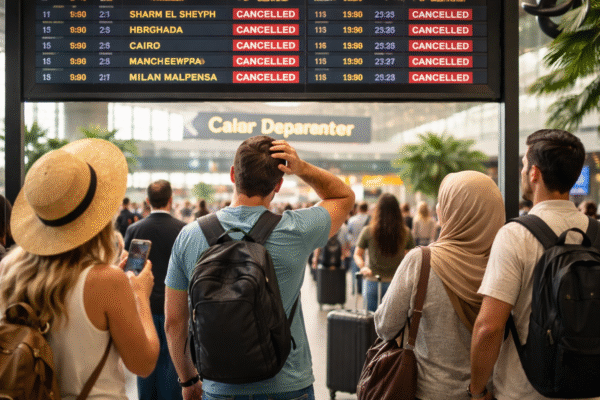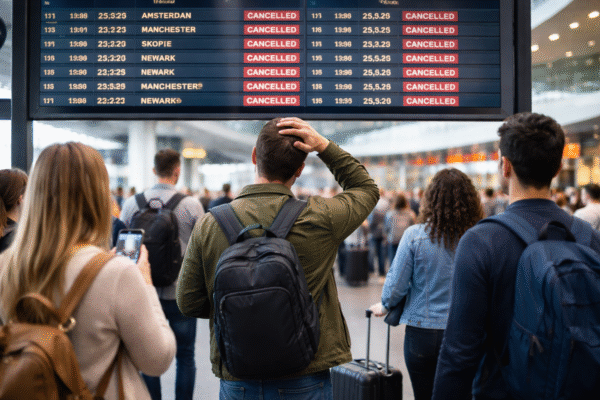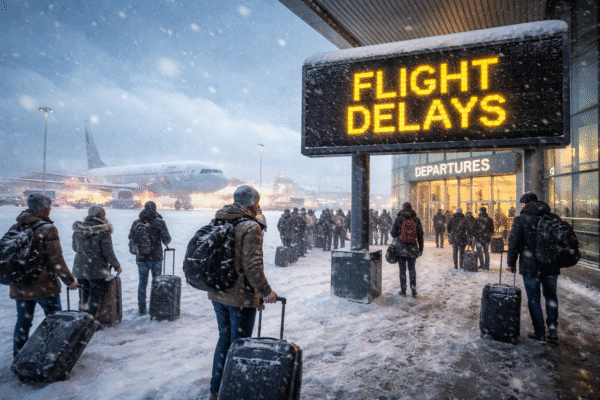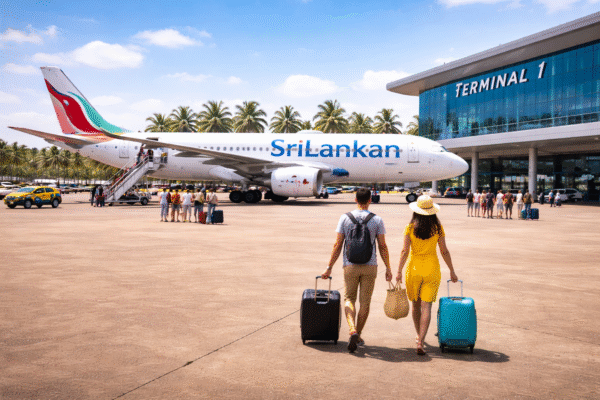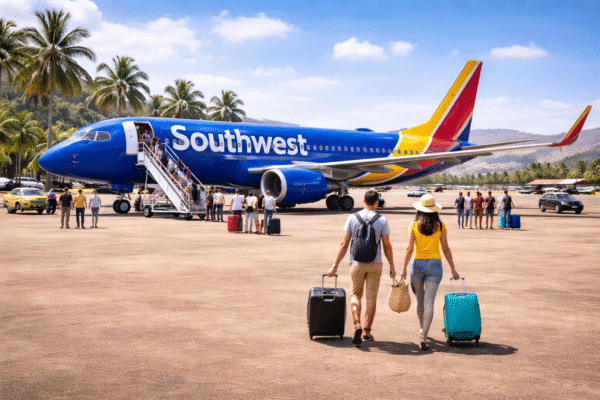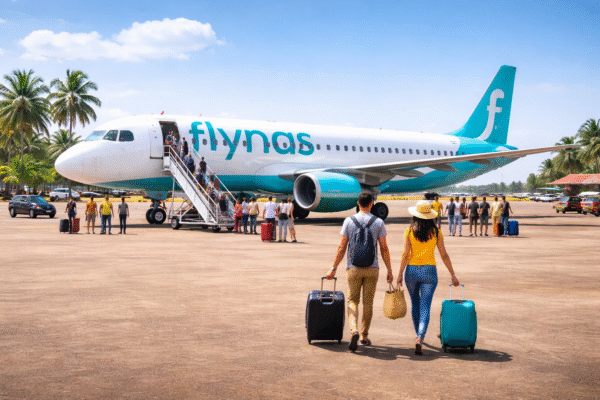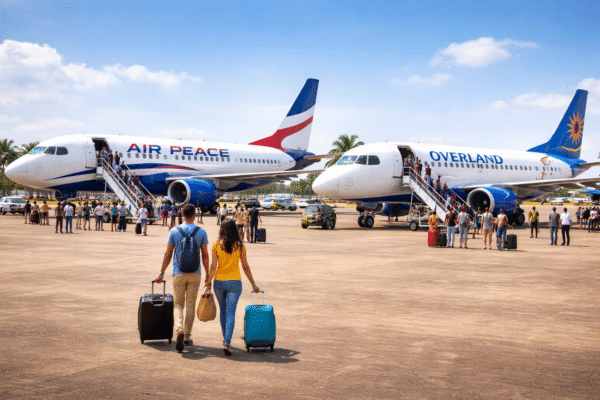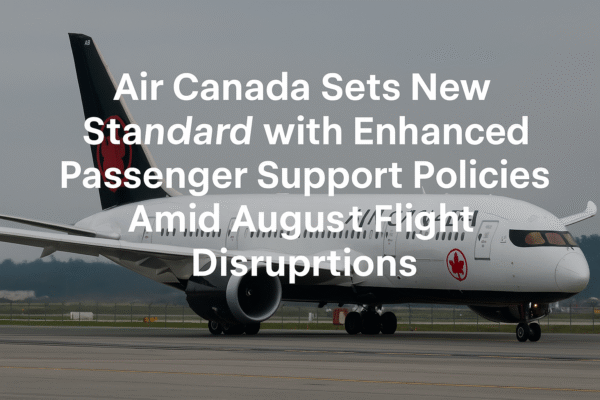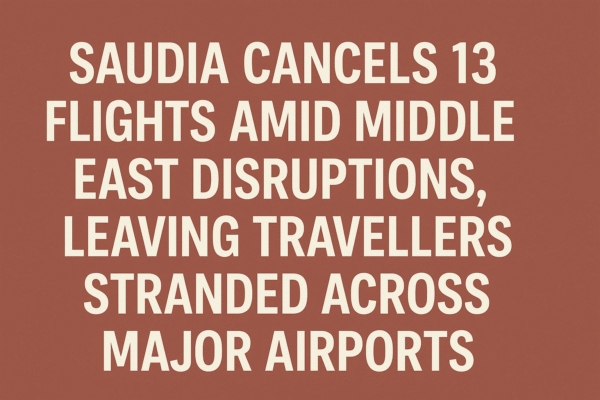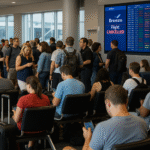In response to widespread flight disruptions across Canada and internationally between August 15 and 23, 2025, Air Canada has significantly elevated its traveler care standards. The national carrier has introduced expanded goodwill policies to support impacted passengers, offering comprehensive reimbursements for accommodations, meals, and ground transportation, in addition to previously announced flexible rebooking options.
Industry analysts and travel experts agree: this is not just a reactive fix but a forward-thinking framework that could shape global airline customer service standards.
What’s New in Air Canada’s Updated Disruption Policy?
Air Canada’s revised policy now includes the following key features:
- Reimbursement for Out-of-Pocket Expenses: Travelers affected by delayed or canceled flights are eligible for reasonable expense claims covering hotel stays, meals, and transportation.
- Alternative Travel Compensation: Passengers who choose alternate modes of travel—such as rail, ferry, or car—can claim costs if rebooking via Air Canada was not feasible within five days.
- Flexible Rebooking: Affected travelers can rebook without additional charges, ensuring minimal disruption to their itineraries.
All reimbursements must be backed by receipts and submitted through Air Canada’s Customer Relations portal. Due to anticipated high demand, claim processing may take four to six weeks.
Boosting Passenger Confidence with Proactive Communication
Air Canada has also improved its communication channels, advising travelers to check real-time updates on the airline’s website or mobile app. Social media teams and customer service representatives have been mobilized to help manage inquiries and assist with rebooking and compensation processing.
This real-time response model and expanded outreach aim to reduce uncertainty for passengers—a crucial element of customer care during peak travel periods.
Positive Economic Ripple Effects
Beyond its impact on travelers, the policy brings significant economic benefits to local businesses. Hotels, restaurants, and transport services near major Canadian airports like Toronto Pearson (YYZ), Vancouver International (YVR), and Montreal-Trudeau (YUL) are seeing increased engagement due to Air Canada’s compensation model. Experts suggest this could provide a mini stimulus to regional tourism infrastructure, especially during a time of heightened summer travel activity.
Air Canada Sets Global Benchmark in Traveler Support
According to aviation analysts, Air Canada’s disruption policy stands out in a global market where many airlines still fall short of such comprehensive compensation frameworks. The proactive offering to reimburse meals, lodging, and even transportation demonstrates a shift toward a “passenger-first” airline model—one that prioritizes operational transparency and customer experience.
Experts suggest this could influence upcoming revisions in aviation regulatory guidelines, particularly in North America and Europe, where policymakers have been pushing for stronger passenger rights.
Travelers Benefit from Structured and Predictable Responses
Passengers planning future international travel now view Air Canada as a more dependable choice, even amid unforeseen disruptions. By removing the financial burden of last-minute delays or rebookings, the airline empowers its customers to travel confidently.
This strategic shift is particularly reassuring for business travelers, families, and tourists planning multi-leg trips across Canada, the U.S., and overseas. Whether traveling from Toronto to London or connecting from Vancouver to Tokyo, passengers now know they have a safety net.
Operational Excellence Powered by 40,000-Strong Workforce
Air Canada attributes the successful implementation of these upgrades to its team of over 40,000 employees. Ground staff, cabin crew, and support services have worked collectively to restore service levels ahead of schedule following the August disruptions.
This rapid recovery, combined with generous customer service policies, positions Air Canada as a global leader in managing flight disruption recovery while maintaining service integrity.
Implications for the Future of Air Travel
The airline industry is navigating a complex environment of fluctuating demand, labor shortages, and geopolitical tensions. In this climate, Air Canada’s approach stands as a blueprint for crisis management and customer care.
Travel experts foresee several long-term impacts:
- Rising customer expectations for compensation and transparency.
- Increased competitiveness among carriers that prioritize passenger wellbeing.
- Industry-wide adoption of similar reimbursement and rebooking models.
As other airlines begin to follow suit, we may witness the standardization of flexible policies across major global carriers—a win for travelers everywhere.
Conclusion: A New Era in Passenger Protection
By expanding its goodwill and travel disruption policies, Air Canada has delivered more than temporary relief—it has set the stage for a new standard in international aviation. This comprehensive, passenger-focused framework enhances travel confidence, improves brand reputation, and stimulates economic activity across the tourism and hospitality sectors.
For travelers booking future flights, especially during high-demand periods, Air Canada’s updated policies offer not just flexibility, but peace of mind.
Whether flying for business or leisure, passengers can now look forward to a safer, more supportive, and resilient air travel experience—all backed by Canada’s flag carrier.
For more travel news like this, keep reading Global Travel Wire





